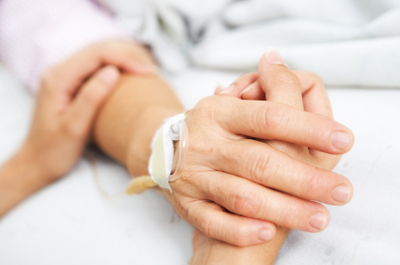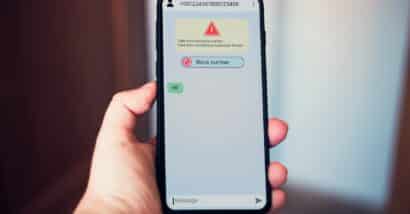 Pressure sores, better known as bed sores, can be a sign of elder abuse, but they’re not a “sure thing.” However, for those who notice an elderly person with bed sores, whether in a nursing home or at some other type of long-term senior care center, it might be worth taking a closer look. Bed sores can be a sign of elderly abuse and may complement other signs of neglect.
Pressure sores, better known as bed sores, can be a sign of elder abuse, but they’re not a “sure thing.” However, for those who notice an elderly person with bed sores, whether in a nursing home or at some other type of long-term senior care center, it might be worth taking a closer look. Bed sores can be a sign of elderly abuse and may complement other signs of neglect.
Nursing home abuse is unfortunately more common than many people realize. Sadly, there are also fewer government dollars earmarked for awareness for this type of abuse than any other. Nursing home neglect is one form of abuse, and may come with a host of signs such as bed sores. There’s also physical abuse, emotional and mental abuse, verbal abuse, sexual abuse and financial abuse.
>>How to File an Elder Abuse Lawsuit
Elder abuse can happen in any facility or with any set-up; however, the people most likely to abuse elders are family members or friends. There are, of course, also “professionals” who have been charged with committing elder abuse. Don’t assume that just because an elder is in a reputable facility or being cared for by a spouse, child or other close family member that elder abuse can’t or won’t occur. However, when it comes specifically to bed sores, it’s a good idea to know more about how they occur, why, and what steps to take next.
What are Bed Sores?
Bed sores are a localized injury that can impact the skin and lower tissue. Most often, bed sores can be found along the sacrum (lower back), heels, hips or coccyx, and often in areas naturally covered with clothes (which can make them tricky to spot). Other sites can include the ankles, backs of the head, elbows and knees. They happen when pressure is constant, sometimes in combination with friction (like when a person is “bed bound,” which shouldn’t be happening if an elder is supposed to have a caretaker).
The nickname “bed sores” can also be a little off. Constant pressure can lead to obstruction of blood flow in the soft tissue. “Shearing” can also occur, which happens when blood vessels are pulled.
Those who are in wheelchairs or otherwise immobile, might develop pressure ulcers. Simply not moving enough can cause them, and they may occur more easily or faster in some people rather than others. Skin tolerance is a very real thing, and some elders might be particularly prone to ulcers even if they are in fact receiving adequate care.
Other factors that can make a person more sensitive to ulcers can include a lack of calories or protein in the diet, key diseases that might reduce skin’s blood flow or “microclimate” which happens when a person is incontinent or sweats more than normal. However, when being treated by a skilled caretaker, these issues should be addressed.
People will heal at different rates from bed sores. This rate of healing can be impacted by a person’s age, a number of medical conditions, whether or not the person smokes, or the occasional use of anti-inflammatory medications. Diseases which are well known for slowing down healing time include Diabetes, Arteriosclerosis or certain infections.
Left untreated, bed sores are more than just painful or openings for more severe infections. Like cancer, these ulcers have four stages, with the most severe being stage four. In stage three, fat, bone, muscle and tendon can be visible. In stage four, these elements are surely exposed and tunneling begins. There are also two stages post-stage four, including unstageable and suspected deep tissue injury. Unstageable means that the ulcer is so covered with “slough” and “eschar,” (dead tissue), that it’s impossible to see how severe the damage is.
>>Signs of Nursing Home Neglect
When someone suspects possible nursing home neglect, if bed sores alone are the red flag, it’s a good idea to look a little closer and see if the ulcers are being regularly treated and (if possible) find out about extenuating circumstances such as diseases or other issues that might cause ulcer sensitivity.
Have You Noticed Bed sores on an Elderly Person?
If you’ve noticed bed sores and suspect nursing home neglect or abuse, it’s crucial to call your state’s Elder Abuse Hotline right now. That person and/or their family might qualify for an elder abuse legal claim. Read more about our legal options at the Elder Abuse Identification & Nursing Home Neglect Class Action Lawsuit Investigation. You’ll be able to submit your story for a free case evaluation to see if you qualify to file a nursing home abuse lawsuit and seek compensation for your loved one.
ATTORNEY ADVERTISING
Top Class Actions is a Proud Member of the American Bar Association
LEGAL INFORMATION IS NOT LEGAL ADVICE
Top Class Actions Legal Statement
©2008 – 2025 Top Class Actions® LLC
Various Trademarks held by their respective owners
This website is not intended for viewing or usage by European Union citizens.














